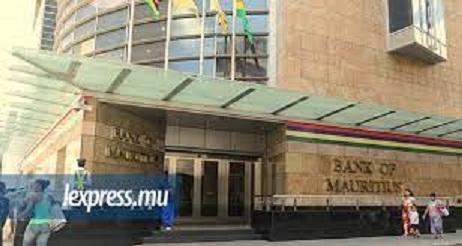Africa-Press – Mauritius. The front page article of l’express of 20 January 2020 on the Special Reserve Fund of the Bank of Mauritius, ‘Rs 18 milliards : Comme une lettre à la poste’, has produced an electric shock to my mind.
As an accountant, I questioned myself how the smart professionals of our country cannot come to an agreement for interpreting a reported figure in the financial statements of our prestigious Central Bank.
I recalled that our Prime Minister (now re-elected) and also the then Minister of Finance of the previous government found nothing scandalous to use a reserve, that is, the Special Reserve Fund sitting in the books of the Bank of Mauritius to finance the budget deficit of the central government.
It is only an idiot who will take a loan and paying interest when he has money available in a reserve called Special Reserve Fund. The ex-Leader of Opposition and others in the opposition have, on the other side, vicariously argued that the independence of the Bank of Mauritius is violated and the Special Reserve Fund should be not be used as it is an unrealised reserve.
And I suppose that l’express of the morning of 20 January 2020 found it strange for the present government to have made the fund transfer to the central government in spite of the uproar of the opposition and others. I will discuss the issue on the technical perspective though trying to make it as simple as possible.
I think the main point is to determine whether the Special Reserve Fund is a realised reserve, that is, represented in the form of cash or it is unrealised one, that is, a book entry as at the closing date of the financial statements in order to measure the relevant assets and liabilities at fair value.
Far from the purpose of making everyone happy, at first glance, we may say the Special Reserve Fund has both components, realised and unrealised, if we refer to sections 47(1) and (2) of the Bank of Mauritius 2004 as quoted below.
47 (1) Any net realised gains or losses in any financial year of the Bank arising from changes in the valuation of its assets or liabilities in, or denominated in, gold, Special Drawing Rights, or foreign currencies as a result of any change in the values or exchange rates of gold, Special Drawing Rights, or foreign currencies in terms of the domestic currency, shall be credited or debited to a Special Reserve Fund.
(1A) Any unrealised gains or losses of the Bank in any financial year, arising from changes in the valuation of investments held by the Bank, shall be credited to or debited from the Special Reserve Fund.
I could understand that the ‘accounting spirit’ of sections 47(1) and (2) of the Bank of Mauritius 2004 is to keep separately from profit or loss of the Bank any foreign exchange difference from restatement of cash balances and revaluation of any investments held by the Bank at fair value as at the financial year end.
That is, exchange difference on cash balances and changes in revaluation of investment are not to be treated as a profit or loss. They are outside the scope of the reported profit or loss of the Bank.
I could also understand the ‘economic spirit’ of the famous sections 47(1) and (2) of the Bank of Mauritius Act 2004, which is to protect the financial safety of the Bank.
Firstly, to avoid the recognition of exchange difference on cash balances as a profit or loss since exchange rates always fluctuate and it would be safer to keep it as a reserve.
Similarly, revaluation of investment cannot be treated as a profit or loss since we cannot be sure whether investment held will maintain the same value when it is disposed in the future. So, the purpose of the Special Reserve Fund is to ensure a conservative financial reporting and therefore it is not meant for distribution.
Without determining how much of the Special Reserve Fund is realised and unrealised, we can confidently conclude that the Special Reserve Fund is not a distributable reserve and cannot be used.
Further, the Special Reserve Fund, as at the reporting date, may not represent the same value of assets at the time of distribution. In short, The realised gains on exchange difference is for safety of the Bank and the cash balances may fluctuate in future as always it is the case; and
The unrealised gain or reserve resulting from the investment is only a book entry at the time of closing the books. Presently, the value of the investment can be different and only the gain realised on its disposal can be put in the pocket of the government, but surely respecting the independence of the respected Central Bank. In life, if we understand the purpose or the underlying reason of anything, then everything become easier and there can’t be confusion.
For More News And Analysis About Mauritius Follow Africa-Press







